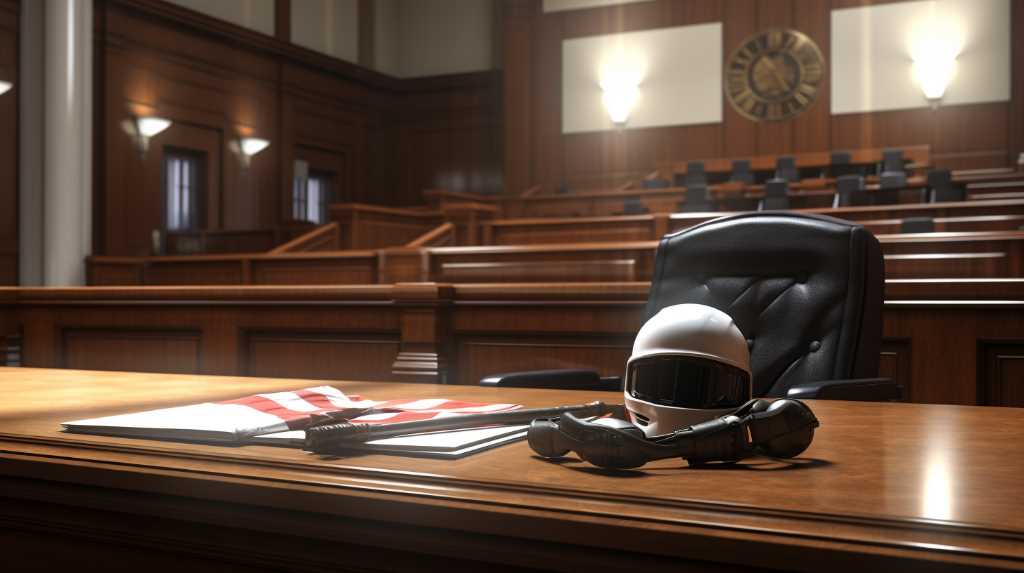
After a motorcycle accident case deposition, lawyers from both sides carefully go over what was said. They do this to find important statements and any contradictions that could change how the case turns out.
Next, they meet to plan their next moves, taking into account what they learned from the depositions. Then, they might try to settle the case to avoid going to court.
If they can’t settle, they prepare for trial by filing motions that could affect the outcome and getting their arguments and witnesses ready. They use information from the depositions to make strong cases to convince the judge or jury.
Reviewing Deposition Transcripts
After a motorcycle accident case deposition, lawyers carefully go over the transcripts to spot any contradictions, important statements, or admissions. They do this because it’s a critical step that helps them decide the best way to approach the case.
They look at every word to build a story that supports their client or weakens the other side’s claims. The lawyers’ skill in noticing small but important details in what was said can often change how the case goes. By pointing out where stories don’t match up, they can question how truthful witnesses are, which is key in convincing the jury or in making deals outside of court.
Then, they use this detailed review to put together strong arguments, making sure they present the case in the strongest way possible, using the most convincing evidence from the deposition.
Legal Counsel Strategy Session
After carefully reviewing the details from deposition transcripts, lawyers get together to plan their next steps for the lawsuit. They use the information they’ve gathered to figure out the strong and weak parts of their case and decide on the best arguments to use in court.
This meeting is important because it’s where they really dig into the details to guess what the other side will do and to make their own client’s case stronger. The team works on telling the story in a way that will connect with the jury and be backed up by past legal decisions.
Lawyers who know a lot about motorcycle accident law use this meeting to make sure they represent their client’s case effectively, which could help in settling the case or in the courtroom.
Settlement Negotiation Tactics
After assessing the strengths and weaknesses of their case, attorneys often engage in settlement negotiations, employing various tactics to maximize their client’s compensation.
One potent strategy is the calculated presentation of evidence gathered during the deposition phase, which can underscore the liability of the opposing party and the extent of damages suffered. Lawyers may leverage this data to argue for a higher settlement, emphasizing the cost and uncertainty of a trial to persuade the opposition towards a compromise.
Additionally, they can employ the tactic of anchoring, wherein they propose a strategically high initial demand, creating a psychological reference point that can make subsequent, lower offers seem more palatable.
Expert negotiators balance assertiveness with diplomacy, aiming to resolve the claim efficiently while ensuring justice for their client.
Pre-Trial Court Motions
Before a trial starts, if the people involved can’t agree on a settlement, their lawyers may file pre-trial court motions. These motions are crucial because they help make the trial simpler and clearer. They let lawyers remove issues that aren’t relevant, make the main problems clearer, and get decisions that help their clients.
For example, if all the evidence is clearly on one side, a motion for summary judgment could end the case before it even goes to trial. This saves time and money.
Also, motions in limine can stop certain evidence from being shown to the jury if it might unfairly influence them. These steps taken before the trial are not just for show; they’re important tools that smart lawyers use to strengthen their clients’ cases before anyone is chosen for the jury.
Trial Preparation Steps
After depositions in a motorcycle accident case, lawyers take important steps to get ready for trial. They go through everything said in depositions carefully to find the important parts and see where the other side might not be strong.
The lawyers work on making a clear and strong story that the jury can believe, using real evidence and experts’ advice. They plan out how to question witnesses and think ahead about what the other side might say, getting ready to respond.
They also make visual helps like drawings of the accident or medical pictures to make hard topics easier to understand.
All this work helps make a full story that shows why their client deserves to be treated fairly and get money for what happened.
Conclusion
After a deposition in a motorcycle accident case, there are some important steps that follow. Lawyers will go over everything said during the deposition very carefully. They’ll talk strategy together to make sure they’re ready for what comes next.
This might include trying to settle the case so it doesn’t go to trial. But if it does, they’ll work hard to make sure they’re as prepared as possible. This preparation can really make a difference in the final result of the case.
For example, if the deposition revealed new information, the lawyers might use this to strengthen their arguments in court or in discussions about settling the case.